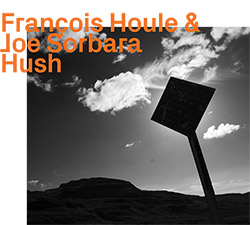
With masterful technique and remarkable creative drive, the Canadian duo of clarinetist François Houle and Joe Sorbara explore unorthodox sound worlds through microtones, pad percussives, circular breathing to stretch phrasing, Houle taking apart his instrument to affect tone and pitch, and Sorbara using idiosyncratic percussive instruments including "back porch piano guts".
In Stock
Quantity in Basket: 1
Log In to use our Wish List
Shipping Weight: 3.00 units
EU & UK Customers:
Discogs.com can handle your VAT payments
So please order through Discogs
Sample The Album:
Francois Houle-clarinet
Joe Sorbara-drums, table percussion, back porch piano guts
Click an artist name above to see in-stock items for that artist.
UPC: 752156103523
Label: ezz-thetics by Hat Hut Records Ltd
Catalog ID: ezz-thetics 1035
Squidco Product Code: 32693
Format: CD
Condition: New
Released: 2022
Country: Switzerland
Packaging: Cardboard Gatefold
Recorded in Toronto, Canada, in November, and December, 2020.
"Here we are again. Where are we?
We can only answer that question from an individual perspective, based upon our perception of place, and space, and time, and stimuli. Each of these categories exists within a complex of contexts - for example, there is the stimulus of personal relationships, the stimulus of our health and that of others around us, the stimulus of political events, the stimulus of work, the stimulus of art. A work of art provides an interactive opportunity to ignite our perception with the product of another's creative concepts and activity. Here, as John Cage used to say, "The plot thickens."
The music that has emerged from the duo of François Houle and Joe Sorbara comes to us from a remarkable vortex of unique experiences, memories, impulses, and techniques. Their past experiences can only be partially summarized. Houle has released dozens of recordings, collaborated with notable figures such as Marilyn Crispell, Evan Parker, Gerry Hemingway, Dave Douglas, and Myra Melford, examined the relationship of music and poetry with Catriona Strang, performed the music of Elliott Carter and Pierre Boulez, incorporated electronics into his instrumental palette, composed an alluring concerto for the clarinet, on which he has developed a virtuosic, ever-expanding technique. Sorbara has brought his vision of percussive sonorities to many Canadian ensembles that have explored various approaches to jazz, chamber music, and improvised settings, including essaying the music of Evan Parker, Anthony Braxton, Jimmy Giuffre, and Sun Ra, he has taught at a number of universities and colleges, and previously worked with François Houle in a trio format, Alien Radio.
Experiences lead us to memories, but memories are not simply passive or regressive contemplations - after all, "It's a poor sort of memory that only works backwards," as the White Queen said to Alice, in a wonderland - and can serve to energize experience into an eternal present. All of the music on Hush was improvised, stimulating the creative impulses of activity and aim. The notion of creative activity brings us to instrumental technique. The common view of technique is the ability to do something you already intend to do - but what if you use technique as a tool for discovery?
This is how we can identify with this music, as discovered in the moment - a sensation shared by the musicians and the listener. Each of the ten pieces exploits the tension between the presumptive authenticity of control (in actuality, only the common length of each piece was established in advance) and the drama of uncovering hidden dimensions of expression within the physicality and instinct of playing one's instrument. As activity initiates sound, we may recognize pitch (or vague or unpitched sonorities), tonal qualities, colors, textures, intervals (linked into melodies of distinctive character), abstract shapes, conversations or coincidences. Accidents, or unexpected diversions, can occur, reconciled through reflexes; details intensified by the surprise of spontaneous counterpoint.
From piece to piece, Sorbara's percussion offers a variety of orchestral implications - metallic sounds contrasting with the woody resonance of Houle's clarinet tube in the dancing movement of "Parallelepiped," brushes to compliment the clarinet breathing that colors the air in "Stool Pigeon," the gamelan-like small bells and gongs accompanying the clarinet's looping exotic lines on "What Next?," the drum clatter including bowed and ringing cymbals agitating the clarinet's distorted pitches, feints, and loops (evocative of a Chaucerian compleynt?) on "Unwreste," and the addition of plucked piano strings and an ambient recording of crickets on the opening "Knocked Ambulations" (a pun on noctambulations, defined as sleepwalking) and closing "A Veil Drawn Over."
Similarly, the etude-like breadth of Houle's investigations into the clarinet's potential as sound generator extend into microtones, pad percussives, circular breathing to stretch phrasing, taking apart the instrument to affect tone and pitch, growling, muttering, squawking vocalizations on "Montgolfière" (could the title be an ironic homage to the hot-air balloon brothers who flew in 1783?), tonal manipulations ranging from ripe, velvety fullness to flutey chirps and subtle, shadowy overtones - each action instigating the molecular DNA identifying the adventurous forms the music consequently inhabits. But "melody" is not abandoned. "Travelling By Foot" has an almost recognizable tune (the mind sometimes plays tricks) pushed to the brink, "Coded Whisper" could be compared to a Giuffresque folk line, "Stool Pigeon" morphs from measured breath to a melody chasing its own tail.
Still, it's helpful to be reminded by Giuseppe Verdi that "Music is more than melody, rhythm, and harmony - it's music." It's a distinction we accept on faith, trusting in our nature to locate that place within ourselves where the music's spirit sings. Immersed in Hush, we find ourselves in a fluid, shifting environment where we may experience what the Objectivist poet George Oppen called "the lyric valuables." Here we are again."-Art Lange, Chicago, March 2021
Artist Biographies
• Show Bio for Francois Houle Francois Houle (born August 17, 1961, Lachine): "I am a Canadian clarinetist who embraces pretty much any music where the clarinet is present, or has a bit of profile or history. Although I am classically trained, I have not followed the traditional career path associated with the kind of classical training I came out of. I studied at McGill University with Emilio Iacurto (the legendary, long-time principal clarinetist of the Montreal Symphony Orchestra) and at Yale University with Keith Wilson (whose contribution to the clarinet world is unparalleled). I've had the privilege of participating in masterclasses with some of the world's finest clarinet players, including David Shifrin, Richard Stoltzman and Alan Hacker. It was Alan Hacker who actually opened the door for me to explore new technical and musical possibilities on the clarinet. Having been part of Fires of London and a close collaborator with composers such as Peter Maxwell-Davies, Alan's insatiable curiosity and deep scholarship inspired me to look for my own personal approach. Following a brief visit to his home in the UK in the late 80's I spent some time in Paris practicing and researching clarinet new music repertoire. At that time I still didn't know what I was going to do with my life, except that I had a deep desire to "make it" in the music scene. It was during this period that I discovered the music of Steve Lacy. Steve Lacy's career actually began as a dixieland clarinetist, eventually shifting to the soprano saxophone, an instrument very few jazz musicians had investigated since the great Sydney Bechet due to its range, smaller embouchure and faulty intonation. Steve dedicated his life to bringing this instrument at the forefront of creative music (legend has it that he turned John Coltrane on to the soprano's expressive qualities). At the time I had one occasion of hearing him play live at the New Morning jazz club, and bought a newly released duo recording called "Paris Blues" (Owl Records, 1987) with the great Gil Evans on piano. Heading back to Canada, that was the only music I could listen to for quite a while, being transfixed by Lacy's and Evan's telepathic playing. It was the first time that I had found a jazz performance that rivalled with the finest chamber music making I was then more familiar with. It was a game changer as far as I was concerned. It opened the door for further exploration and discoveries; Anthony Braxton, John Carter, Jimmy Giuffre, all important figures in the development of creative music on the clarinet. It is interesting and deplorable to note that not once were these names ever mentioned in all my years of university clarinet seminars and lessons. It was only a few years later that he agreed to meet with me for one on one lessons at his Paris apartment. His main advice to me was to stick with the clarinet, and forge ahead with my musical thoughts and ideas, no matter how difficult the road ahead may be. After a stint at the Banff Centre, where I worked on my technique and practiced improvisation (the centre has a great library with an extensive jazz and creative music collection), I relocated to Vancouver in the winter of 1989, where I began playing on the creative music scene and met many musicians who eventually became fantastic collaborators; Claude Ranger, Roger Baird, Tony Wilson, amongst many others. At the time, the New Orchestra Workshop Society was approaching its golden years, with the founding of the legendary Glass Slipper, the "go to" venue for creative music on the West Coast. The Vancouver Jazz Festival was well on its way to establishing itself as one of the most innovative international music happening, not only programming some of the biggest names in the business, such as Miles Davis and Wynton Marsalis, but also the most creative musicians on the planet; Cecil Taylor, Evan Parker, John Zorn, Dave Douglas, Anthony Braxton, William Parker, and a whole sleuth of European 1st generation of improvisors such as Misha Mengelberg, Han Benning, ICP, AMM, and the Italian Instabile Orchestra. It was at the 1992 Jazz Festival that I had my first high profile gig, my first band "Et Cetera" sharing the bill with the Steve Lacy Sextet! As I was making my first steps in the improvised community, I also became involved with the contemporary music scene, collaborating with composers such as John Oliver and Paul Dolden, as well as freelancing with established organizations; Vancouver New Music, Vancouver Pro Musica. In 1992 I became a founding member of the Standing Wave ensemble. My activities in both creative music and new music allowed me to forge a strong profile, eventually expanding to collaborations with international musicians, and getting international touring opportunities. Some long standing collaborations were forged during that fruitful period, with luminaries such as Benoît Delbecq and Joëlle Léandre among others. I have since been constantly involved in the advancement of creative music, pursuing collaborative projects with composers and musicians of all persuasions. My work continues to test the boundaries, looking for new vistas and connections with listeners everywhere." ^ Hide Bio for Francois Houle • Show Bio for Joe Sorbara "Canadian drummer and percussionist Joe Sorbara has spent decades developing a reputation as a dedicated and imaginative performer, composer, improviser, collaborator, organiser, listener, writer, and educator. A consummate sonic adventurer, Sorbara's music draws on a vast array of influences, most notably the African American Creative Music tradition. They have performed and recorded with Ken Aldcroft, Jared Burrows, Anthony Braxton, JP Carter, Nikita Carter, Christine Duncan, Paul Dutton, François Houle, Germaine Liu, Joe McPhee, Evan Parker, William Parker, Allen Ravenstine, Clyde Reed, Steve Sladkowski, and Friendly Rich, among many many others. Their own projects include the Joe Sorbara Sextet, Alien Radio, Aurealities, the Imaginary Percussion Ensemble, The Imperative, Never Was, Mars People, and Reliable Parts. Sorbara is a long-time student of master drummer Jim Blackley. They hold an Honours Bachelor of Fine Arts in Music from York University in Toronto, a Master's degree in English from the University of Guelph, and they are currently studying toward a PhD in Critical Improvisation Studies. Joe has worked extensively as a workshop facilitator and guest lecturer and began teaching through the School of Fine Arts and Music at the University of Guelph in 2007." ^ Hide Bio for Joe Sorbara
7/9/2025
Have a better biography or biography source? Please Contact Us so that we can update this biography.
7/9/2025
Have a better biography or biography source? Please Contact Us so that we can update this biography.
Track Listing:
1. Knocked Ambulations 4:08
2. Coded Whisper 4:14
3. Stool Pigeon 4:10
4. Parallellepiped 4:11
5. Travelling By Foot 4:21
6. Unwreste 3:58
7. What Next? 4:02
8. Hold Your Peace 4:07
9. Montgolfiere 4:03
10. A Veil Drawn Over 4:09
Hat Art
Improvised Music
Free Improvisation
Jazz
Duo Recordings
Recordings by or featuring Reed & Wind Players
Percussion & Drums
Canadian Composition & Improvisation
New in Improvised Music
Search for other titles on the label:
ezz-thetics by Hat Hut Records Ltd.


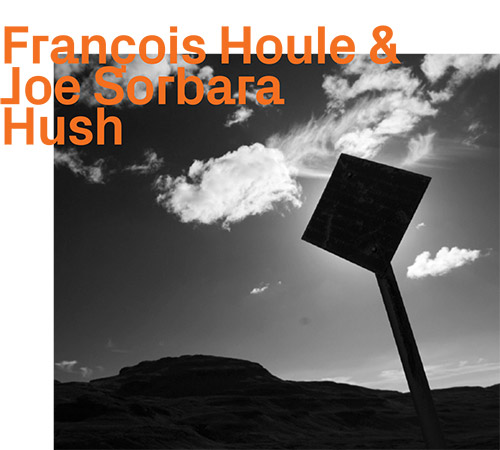
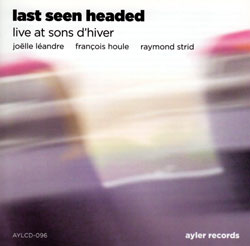

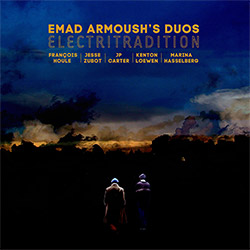
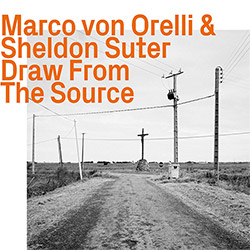

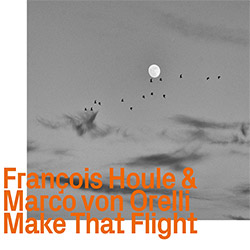
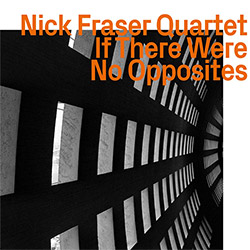
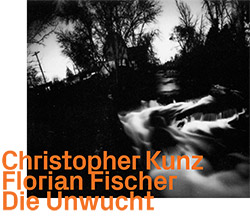
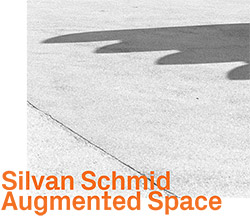
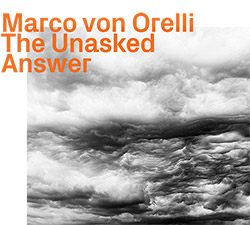
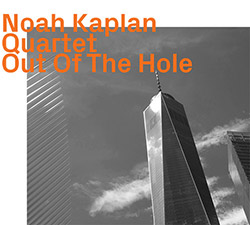
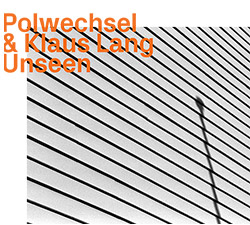
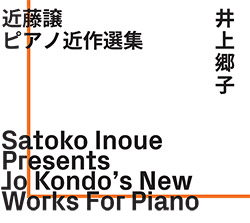
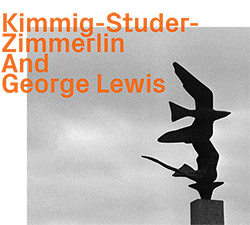



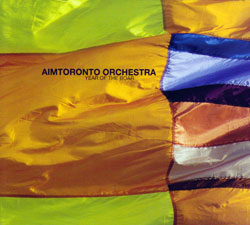
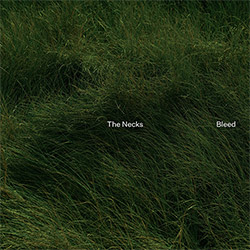
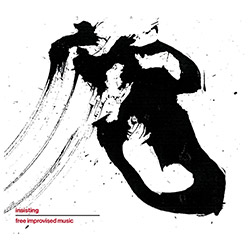
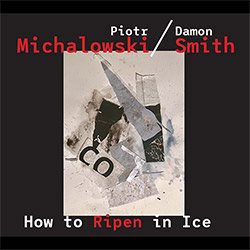



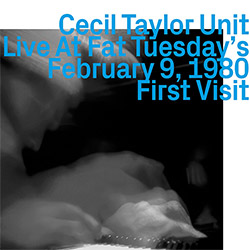





![BlueRing Improvisers: Materia [2 CDs]](https://www.teuthida.com/productImages/misc4/36513.jpg)








![Wheelhouse (Rempis / Adasiewicz / McBride): House And Home [VINYL]](https://www.teuthida.com/productImages/misc4/36462.jpg)
![+DOG+: The Light Of Our Lives [2 CDs]](https://www.teuthida.com/productImages/misc4/36009.jpg)


![Parker, Evan / Jean-Marc Foussat: Insolence [VINYL]](https://www.teuthida.com/productImages/misc4/36398.jpg)










![Deupree, Jerome / Sylvie Courvoisier / Lester St. Louis / Joe Morris: Canyon [2 CDs]](https://www.teuthida.com/productImages/misc4/36404.jpg)



![Eventless Plot | Haarvol: The Subliminal Paths [CASSETTE + DOWNLOAD]](https://www.teuthida.com/productImages/misc4/36232.jpg)










![Eventless Plot | Francesco Covarino: Methexis [CASSETTE + DOWNLOAD]](https://www.teuthida.com/productImages/misc4/36231.jpg)



![Das B (Mazen Kerbaj / Mike Majkowski / Magda Mayas / Tony Buck): Love [VINYL]](https://www.teuthida.com/productImages/misc4/36329.jpg)


![Eternities: Rides Again [CASSETTE]](https://www.teuthida.com/productImages/misc4/36247.jpg)
![Lopez, Francisco: Untitled (2021-2022) [2 CDs]](https://www.teuthida.com/productImages/misc4/36438.jpg)






![Money : Money 2 [2 CDs]](https://www.teuthida.com/productImages/misc4/35894.jpg)




![Klinga, Erik: Elusive Shimmer [VINYL]](https://www.teuthida.com/productImages/misc4/36258.jpg)
![CHANGES TO blind (Phil Zampino): Volume 9 - I Wave on a Fine Vile Mist [CD + DOWNLOAD]](https://www.teuthida.com/productImages/misc4/36061.jpg)

![Wallmart / Rubbish: Asset Protection [split CD]](https://www.teuthida.com/productImages/misc4/35900.jpg)


![+Dog+: The Family Music Book Vol. 5 [2 CDs]](https://www.teuthida.com/productImages/misc4/35897.jpg)
![Kuvveti, Deli : Kuslar Soyledi [CASSETTE w/ DOWNLOAD]](https://www.teuthida.com/productImages/misc4/36107.jpg)

![Brown, Dan / Dan Reynolds: Live At The Grange Hall [unauthorized][CASSETTE]](https://www.teuthida.com/productImages/misc4/36245.jpg)








![Palestine, Charlemagne / Seppe Gebruers: Beyondddddd The Notessssss [VINYL]](https://www.teuthida.com/productImages/misc4/36206.jpg)
![Palestine, Charlemagne / Seppe Gebruers: Beyondddddd The Notessssss [NEON GREEN VINYL]](https://www.teuthida.com/productImages/misc4/36207.jpg)

![Laubrock, Ingrid: Purposing The Air [2 CDs]](https://www.teuthida.com/productImages/misc4/35639.jpg)

![Yoko, Ono / The Great Learning Orchestra: Selected Recordings From Grapefruit [2 CDs]](https://www.teuthida.com/productImages/misc4/35841.jpg)









![Zorn, John / JACK Quartet: The Complete String Quartets [2 CDs]](https://www.teuthida.com/productImages/misc4/35609.jpg)

![Lonsdale, Eden: Dawnings [2 CDs]](https://www.teuthida.com/productImages/misc4/35480.jpg)



![Sorry For Laughing (G. Whitlow / M. Bates / Dave-Id / E. Ka-Spel): Rain Flowers [2 CDS]](https://www.teuthida.com/productImages/misc4/35985.jpg)

![Rolando, Tommaso / Andy Moor : Biscotti [CASSETTE w/ DOWNLOADS]](https://www.teuthida.com/productImages/misc4/36106.jpg)


![Electric Bird Noise / Derek Roddy: 8-10-22 [CD EP]](https://www.teuthida.com/productImages/misc4/35970.jpg)








![Elephant9 : Mythical River [VINYL]](https://www.teuthida.com/productImages/misc4/34624.jpg)



![Elephant9 with Terje Rypdal: Catching Fire [VINYL 2 LPs]](https://www.teuthida.com/productImages/misc4/35355.jpg)
![Deerlady (Obomsawin, Mali / Magdalena Abrego): Greatest Hits [VINYL]](https://www.teuthida.com/productImages/misc4/34876.jpg)







![Surplus 1980: Illusion of Consistency [CD]](https://www.teuthida.com/productImages/misc4/35069.jpg)
![Staiano, Moe: Away Towards the Light [VINYL + DOWNLOAD]](https://www.teuthida.com/productImages/misc4/35037.jpg)
![Coley, Byron: Dating Tips for Touring Bands [VINYL]](https://www.teuthida.com/productImages/misc4/17906.jpg)

![Lost Kisses: My Life is Sad & Funny [DVD]](https://www.teuthida.com/productImages/misc4/lostKissesDVD.jpg)